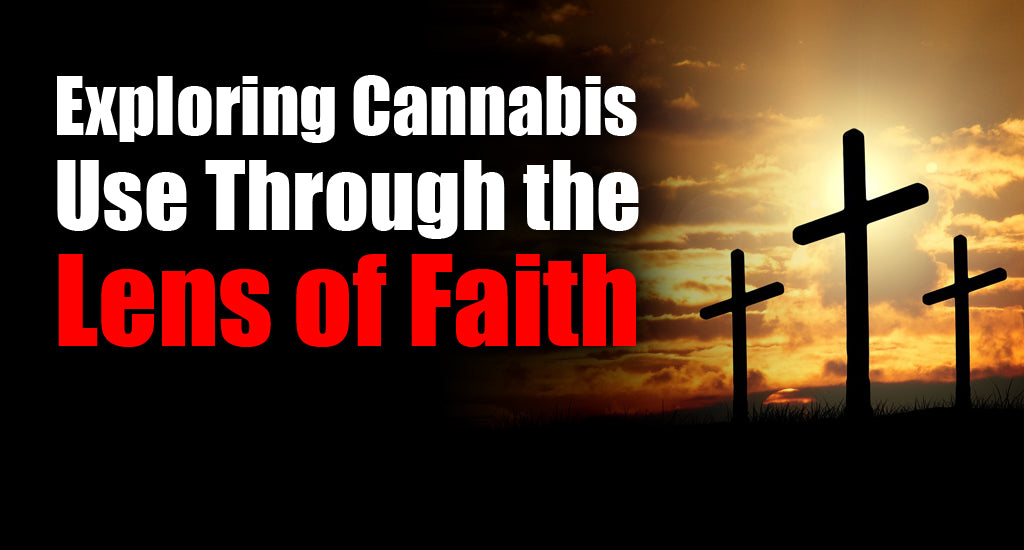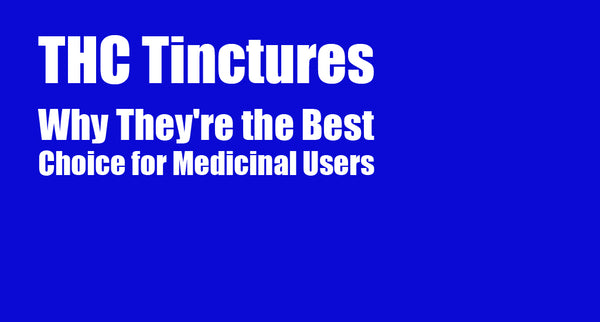
Exploring Cannabis Use Through the Lens of Faith
Navigating the Complex Intersection
In a world where cultural values, personal beliefs, and legal systems intersect, discussions around topics like cannabis use can become incredibly complex. This complexity is particularly evident within the context of faith, where adherents grapple with the intersection of religious doctrine, personal freedoms, and societal norms.*
The interplay of faith, personal beliefs, and societal standards creates a web of intricate perspectives when it comes to cannabis use. The clash between individual choices and religious teachings is a recurring theme that transcends specific belief systems. The frustration encapsulated in the sentiment "You're just going to do what you want and rationalize it like every other Christian" captures the tension experienced by believers both inside and outside the faith.
Persecution, a historical backdrop, adds layers of complexity to these conversations. Critics argue that those advocating for tolerance should consider their actions towards others. This appeal for introspection highlights the intricate roles of judge and judged in the realm of faith and personal choices.
The spectrum of opinions on cannabis further intensifies the complexity. While some argue for moderation, others maintain that adherence to religious principles should preclude recreational substance use. The dynamic interplay of faith, legality, and societal perception further fuels these discussions.
Weighing Faith and Freedom
The intersection of spirituality and substances has long been a contentious topic, sparking debates within religious communities and secular circles alike. As discussions about cannabis have grown, individuals of faith have found themselves grappling with questions that extend beyond legality – delving deep into the realm of morality, ethics, and personal belief.*
The dialogue around cannabis extends beyond legality, delving into profound moral and ethical territories. For some, cannabis serves as a catalyst for introspection, allowing them to explore profound concepts that bridge ancient teachings with modern challenges. The historical presence of the cannabis plant adds complexity, with interpretations ranging from spiritual growth to cautious skepticism.
The debate extends to interpretations of religious texts, with some citing verses about herbs and seeds as divine gifts, while others emphasize self-control. The line between usage and abuse is often blurred, and opinions differ on whether substances like marijuana are inherently sinful or whether it's their misuse that constitutes wrongdoing.
Religious teachings and societal influences shape perspectives. The opposition to cannabis within certain circles is examined through the lens of pharmaceutical and economic interests. The historical context of cannabis prohibition also looms large, with its roots in racial prejudices continuing to affect viewpoints.
Cannabis in the Book of Exodus Anointing Oil
In the historical context of 1450 BC, the Book of Exodus draws a fascinating connection between cannabis and sacred anointing oil. Within the original Hebrew version of the recipe outlined in Exodus (30:22-23), a noteworthy substance known as kaneh-bosem is mentioned. This ingredient, identified by esteemed etymologists, linguists, anthropologists, botanists, and other researchers, is believed to be cannabis. Astonishingly, this substance was incorporated in large quantities – more than six pounds – into approximately six quarts of olive oil. This infusion was accompanied by an array of aromatic herbs, creating a profoundly potent concoction.
The anointed figures of antiquity were immersed in this potent blend, leading to contemplation of its profound implications. While interpretations may differ, some proponents of marijuana propose that the recipe for the divine anointing oil, imparted from God to Moses, included cannabis – referred to as kaneh-bosm in Hebrew. Advocates of this view highlight versions of the text that initially called for fragrant cane. These proponents contend that a translation error led to the substitution of the plant calamus in the King James version of the Bible.
This intriguing historical reference offers a glimpse into the utilization of cannabis in religious practices, casting light on the intricate interplay between ancient traditions and the plants that played a role in shaping them.
Ancient Biblical Shrine Unveils Cannabis Use in Rituals
New research suggests that an ancient biblical tribe in Israel employed marijuana for hallucinogenic effects during their cultic rituals. The study, published in the journal Tel Aviv, examined an altar within a shrine constructed around 750 BCE and located near the entrance of the "Holy of Holies." Analysis of the materials on these altars unveiled evidence of marijuana combustion, including the burning of cannabis inflorescences. The study posits that this practice may have played a deliberate psychoactive role, stimulating ecstasy as part of ceremonial activities.
While hallucinogenic substances have been utilized in various cultures throughout history, this is the first physical evidence indicating that the tribe of Judah was involved in marijuana-infused ceremonies. The research team, from the Israel Museum and the Volcani Center, used chromatography methods to identify cannabinoids like THC, CBD, CBN, and terpenoids in the burnt material. The source of the cannabis remains uncertain, but researchers speculate that it might have been imported as dried resin.
The practice of mixing cannabis with animal feces to generate smoke was discovered, indicating the intent to release its psychoactive properties. Eran Arie, a curator at the Israel Museum, noted that this discovery alters perceptions of the cultic practices of Judah. The ancient use of cannabis reflects its diverse historical applications and reveals new layers of insight into the rituals of this biblical community.
Divergent Perspectives and Evolving Dialogue
In the realm of ethics, spirituality, and legality, the discussion surrounding cannabis presents a fascinating tapestry of diverse viewpoints. From the intersection of religious faith with government laws to the ambiguity of sin and personal choice, the discourse continues to evolve, reflecting the complexity of human beliefs and societal norms.
The divergence of viewpoints on the intersection of faith and legality is a hallmark of these conversations. The concept that sins do not necessarily align with government laws challenges the common assumption. The international dimension also emerges, questioning the relationship between personal beliefs and laws of other countries.
Cannabis, unexpectedly, serves as a unifying element, fostering connections among individuals with differing worldviews. The nuances of responsible use versus misuse, and the complex interplay of biblical teachings and contemporary norms, further contribute to the ongoing dialogue.
Within this diverse spectrum of perspectives, the overarching challenge remains the reconciliation of deeply held beliefs with the nuances of real-life choices. The dynamic landscape where religious teachings, personal freedoms, and legal systems converge continues to inspire meaningful discussions that mirror the evolving nature of faith and the human experience.



